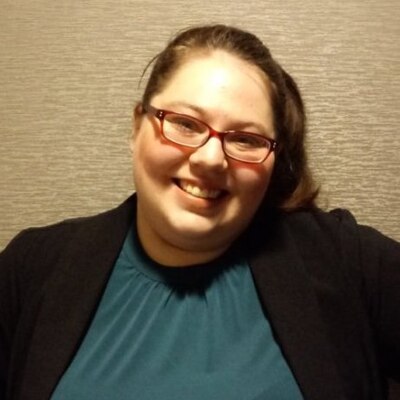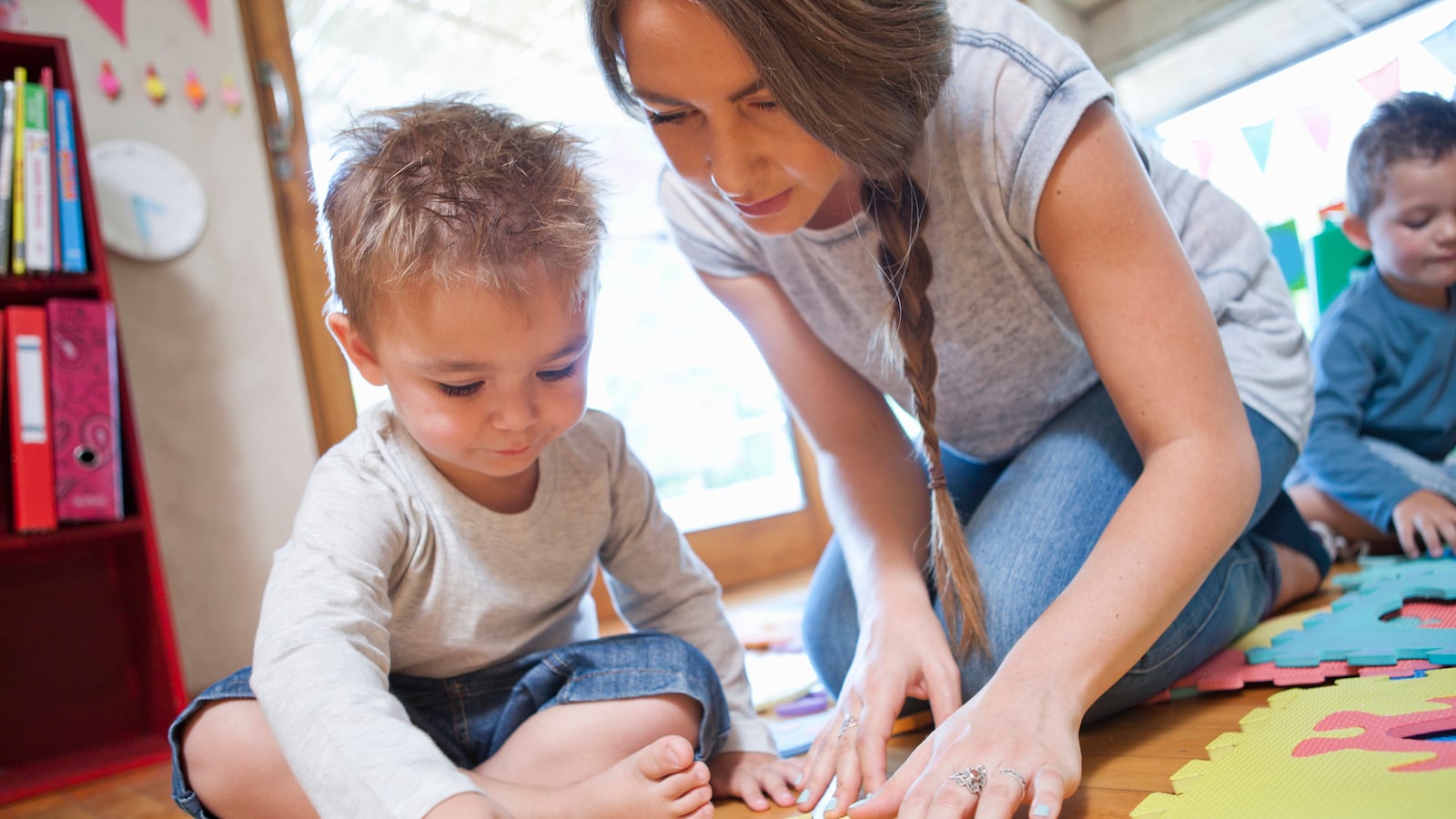My early childhood journey started in earnest with an ending: the ending of my almost five years as an educator in a child care facility. This past February, on one of my final days there, one of my students — I’ll call him John — was struggling again. As a child suffering from severe trauma, he struggled often. Usually I could tell why he was struggling. I had spent months with John, learning his triggers and how to help him through them. Today, I was stumped; I had been stumped a lot with John lately. I decided to take some time with him and to ask what he was feeling.

“You’re leaving,” he told me. “Everyone always leaves me. Why? Why are you leaving?”
Why was I leaving?
I thought back to when I started out as an early childhood educator, fresh from my first pregnancy and having recently graduated with a bachelor’s degree in a completely unrelated field. I applied to work at a child care facility simply because I needed a job and affordable child care to go with it. It wasn’t a career choice at the time. But as I started to work with the children, the work became a passion. I relished helping my students through their challenges, and I reveled in their strengths and accomplishments. I loved collaborating with their families to help them in their parenting journey. I had always wanted to be an advocate, a voice in the world for something important. Here, I had found my calling.
I wanted to be a lead teacher, to have my own room full of children to help grow and develop. I went back to school, paying my own way, to get the credit hours I needed to become one. Then I went on to get my master’s and even commit to pursuing a doctorate in the field. I took work home, even though it didn’t get me any extra money beyond the paltry $11.13 an hour that I made. In my own time and on my own dime, I sought out additional professional development to learn about trauma, cultural sensitivity, and how best to teach bilingual and immigrant children. I researched ways to create inclusive environments where students with IEPs would feel welcome and thrive, while also researching ways to support their families. I was committed to giving my children the best. Giving them the best meant being my best as well.
But the sacrifices left me no extra time for my daughter, who had been diagnosed with a mental health disability. I couldn’t afford to get her the services she needed or take the time off to drive to the doctor’s an hour away. I had no energy for her and no alternatives for different care.
One of my assistant directors used to tell us to make sure we were always filling our emotional buckets so that we wouldn’t go empty and burn out. Well, I didn’t just have an empty bucket. I had one with a giant leak in it, and it was rusting, and the hole was getting a bit larger every day. I eventually decided I needed to advocate for myself and asked for a raise. I was told when I graduated with my master’s, the corporation that I worked for would give me a dollar or two more per hour. I felt stunned and angry. I had done so much, sacrificed so much. All I wanted was not to live paycheck to paycheck. I was worth more.
As John looked me in the eyes and asked me why, I reminded him of how we work almost daily on feeling worthy. I explained to him that in my spare time I had committed to being an advocate for other educators and to help them feel worthy. I thought about my advocacy work with an organization for early childhood educators and with one that helps develop teacher leaders. I had even written my master’s capstone on the history and effects of low wages for early childhood educators. I knew he wouldn’t understand, but in my heart I knew that I couldn’t teach others to believe in their worth if I allowed myself to be treated as unworthy. I told him that it was time for me to go somewhere else where I could help others feel their worth, too.
John said that if I left I would forget him. But I assured him that would never happen. I have yet to forget any of my students. They have all touched my heart in some way. I would not be where I am today without having had them as my students.
My love for the young children I teach is what kept me — and what has kept so many other dedicated early childhood professionals — in the field, despite its low wages and high demands. (Many early childhood educators whose centers stayed open during the coronavirus crisis have even worked right on through the pandemic.)
But after almost five years, it was time to redirect some of that passion. I got a job in which I’ll be visiting homes — helping parents support their children’s development and supporting families during tough times. In June, I started my doctoral journey, where I plan to focus my research on the effects that wage compensation has on the quality of early childhood programs.
I have found my inner flame and power, and I have no intention of letting it go out. As an early childhood educator, I am a member of a beautiful community of men and women who are constantly thinking about the youngest around us and what they need. I am a professional. I am smart. I am strong. I am bold. I am brave. I am capable. I am kind. I am tough. I am enough. I am worthy. And I know that now. It’s time for all of us to realize it and it’s time for the rest of the world to realize it, too.
Aubry Stapleton is currently working as an Early Start home visitor for Children’s Home and Aid. In her free time she works with her local chapter of the Illinois Association for the Education of Young Children, and is a 2019-20 Teach Plus Early Childhood Education Policy Fellow. She received her master’s in early childhood studies from Walden University, where she is currently working toward her doctorate in education.



